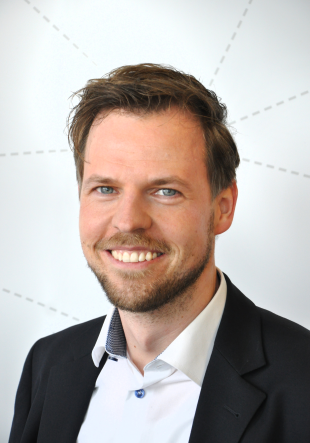Simultaneous Development and Testing of Cyber Physical Systems (CPS) using the example of autonomous electric vehicles (SET CPS)
Overview
dSPACE, e.GO Mobile, and the Institute of Industrial Mathematics Launch Research Project
Paderborn/Aachen, May 28, 2019. How can autonomous vehicles with electric drives be developed as examples of complex cyber-physical systems faster, more cost-effectively, and with lower resource consumption? And how can the safety of these vehicles on the road be increased? A team of researchers and developers from dSPACE, e.GO Mobile AG, and the Institute of Industrial Mathematics at the University of Paderborn started a research project a few weeks ago to answer this complex question. The project is funded by the German state of North Rhine-Westphalia (NRW) and the EU as part of the IKT.NRW lead market competition. The project, scheduled to run for 36 months, aims to simultaneously develop and test cyber-physical systems (CPS) using the example of an electric autonomous vehicle. It is abbreviated SET CPS according to its German title.
In vehicle development, trends such as automated driving and the development of alternative drives, such as battery-powered vehicles, are causing a sharp increase in the demands placed on the underlying systems. When these types of vehicles are developed, the aim is to optimize a large number of target parameters such as fuel consumption, range, and driving comfort, and to guarantee the safety of the system. Researchers and developers in the SET CPS project are now looking for new approaches to make the development processes for manufacturers and suppliers reliable and economical, and enable them to meet development times.
The project therefore aims to develop intelligent, simulation-based processes that improve and systematize the development and test process of complex vehicles and increase the degree of automation. For this purpose, design and testing are more closely interlinked to achieve a high level of quality even in the early development phases. The researchers also use the latest mathematical methods from multi-objective optimization, which is one of the core competencies of the Institute of Industrial Mathematics. This enables them to simultaneously achieve competing goals, such as energy efficiency, comfort, and costs, while ensuring the safety of the system. The plan is to integrate the new processes into the dSPACE tool chain and evaluate them using an example from e.GO vehicle development.
“As consortium leader of the project, our goal is to take the next step toward a one-stop development environment for autonomous vehicles," explained Dr. Rainer Rasche, Group Manager Test Automation at dSPACE. “The resulting tool chain enables the developer to adjust the parameters of an ECU to different, typical traffic situations and simultaneously test them in the simulated environments. This will enable our customers to accelerate their development."
Dr. Michael Riesener, Vice President Corporate Research at e.GO Mobile AG, said: “The simultaneous development and testing of new systems for our electric vehicles made possible by SET CPS also enables us to achieve fast development times and to design the vehicles with an even stronger focus on requirements. For this reason, we look forward to advancing the research project in cooperation with our partners."
About e.GO Mobile AG
e.GO Mobile AG was founded in 2015 by Prof Dr Günther Schuh as a manufacturer of electric vehicles. The more than 400 employees use the campus's unique network of research facilities and approximately 360 technology companies on the RWTH Aachen Campus. Highly agile teams work on a variety of cost-effective and customer-focused electric vehicles for short-haul traffic. e.GO Mobile AG is currently commissioning its new plant in Rothe Erde, Aachen, for series production.
About IFIM
The Institute of Industrial Mathematics was founded at the University of Paderborn to facilitate a direct transfer of knowledge from applied mathematics to business. Together with partners from industry, in particular small and medium-sized enterprises, they identify mathematical problems and develop efficient solutions that are based on the latest scientific findings. The interaction between science and industry can yield significant progress in scientific, economic, and technological terms.
About dSPACE
dSPACE develops and distributes integrated hardware and software tools for developing and testing electronic control units. As a one-stop supplier, dSPACE is a sought-after partner and solution provider in many development areas of the automotive industry, from electromobility to vehicle networking to autonomous driving. The company's customer base therefore includes virtually all major vehicle manufacturers and suppliers. dSPACE systems are also used in the aerospace and other industries. With more than 1,700 employees worldwide, dSPACE is headquartered in Paderborn, Germany; has three project centers in Germany; and serves customers through regional dSPACE companies in the USA, the UK, France, Japan, China, and Croatia.
Key Facts
- Project type:
- Research
- Project duration:
- 05/2019 - 04/2022
- Funded by:
- EU, EFRE.NRW

